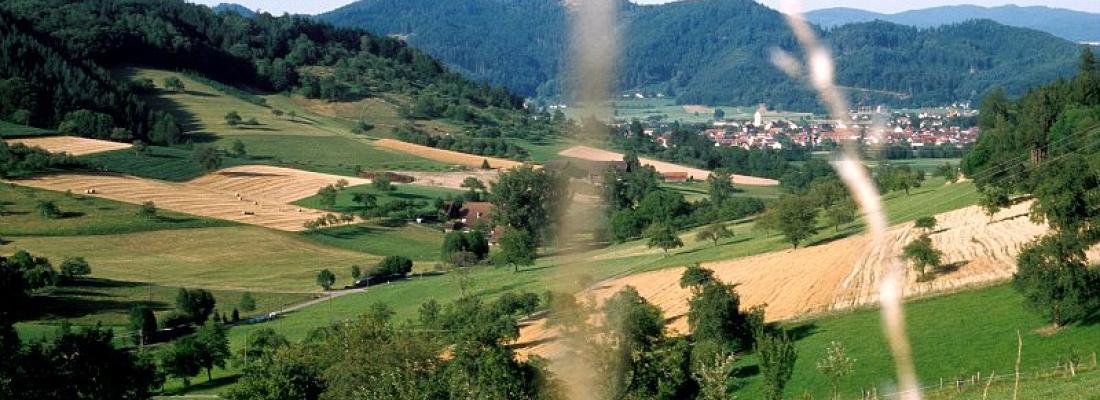Society and regional strategies Reading time 3 min
Are the CAP and the Green Deal compatible? Researchers from INRAE and AgroParisTech carried out a study about climate and environmental priorities for the next CAP
Published on 26 November 2020

The study, commissioned by the European Parliament and carried out by experts from INRAE and AgroParisTech, includes several recommendations to reinforce the climate and environmental ambitions in the next CAP, in line with the objectives of the Green Deal1. According to the research team, some of the essential provisions to be implemented are the strengthening of conditionality requirements - which demand compliance with minimum requirements to receive first pillar direct aids -, developing ambitious eco-scheme measures focusing mainly on reducing greenhouse gas emissions and protecting biodiversity, and securing specific budgets dedicated to climate and environmental measures in both pillars.
Additionally, it is imperative to improve the CAP governance, notably by including in national strategic plans national targets corresponding to the Green Deal objectives and ensuring that their implementation is effectively monitored—which will allow for corrective action to take place along the way.
A more effective application of the polluter-pays principle to better legitimise payments for environmental services
According to the study, a more effective application of the polluter-pays principle, upon which conditionality relies, will make it possible to better justify rewarding farmers for their efforts beyond the minimum requirements of conditionality, within the framework of the eco-scheme measures in the first pillar and the climatic and environmental measures in the second pillar.
Enhancing conditionality requirements also involves stricter criteria for a number of measures known as Good Agricultural and Environmental Conditions (GAEC), for example, on wetlands and non-productive lands. It also involves the introduction of new GAEC regarding nutrient flows, chemical molecule uses, and GHG emissions from farms. This would make it possible to better know these flows and to support the most efficient farmers in these areas by means of incentives.
Reallocating first pillar support to fight climate change, protect biodiversity and animal welfare
Eco-scheme measures2 that are fully financed by the European budget must target global public goods; that is, climate mitigation, biodiversity preservation and restoration, as well as animal welfare. To this end, the authors propose allocating 20% of the spending in Pillar 1 to climate mitigation actions and an additional 20% for measures targeting biodiversity. Measures in Pillar 2—co-financed by the Member States—should focus on local public goods, especially water quantity and quality, soil fertility, and landscape diversity. Additionally, 35% of Pillar 2 expenses should be directed towards climate and environmental measures.
The study also stresses the need to set up adjustment mechanisms at the EU's borders to impose equivalent climate and environmental requirements on non-European producers.
To conclude, the authors highlight the fact that acting through the CAP alone will not be enough. In other words, supply measures should be complemented by efficient measures aimed at developing systems relying on bioeconomy principles, reducing food waste and losses, and changing food diets. A coherent, global food policy is crucial in order to make European Agrifood systems more sustainable.
1 The Green Deal is Europe’s strategy to make the EU climate neutral by 2050 and develop a new model of sustainable growth in the European Union. It covers all sectors, including agriculture and food.
2 Eco-schemes are new CAP instruments designed to guide farmers in the ecological transition.
|
Research for the AGRI Committee - The Green Deal and the CAP: policy implications to adapt farming practices and to preserve the EU’s natural resources, nov. 2020; Hervé GUYOMARD; Jean-Christophe BUREAU; Vincent CHATELLIER; Cécile DETANG-DESSENDRE; Pierre DUPRAZ; Florence JACQUET; Xavier REBOUD; Vincent REQUILLART; Louis-Georges SOLER; Margot TYSEBAERT https://www.europarl.europa.eu/thinktank/en/document.html?reference=IPOL_STU(2020)629214 Summary in French: https://www.europarl.europa.eu/RegData/etudes/STUD/2020/629214/IPOL_STU(2020)629214(SUM01)_FR.pdf |
